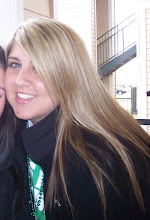
I believe that Appleman sums up the entire chapter with one quote, "As with Marxism, the point with feminist theory, of course, isn't to transform unsuspecting and largely apolitical high school students into feminists; the point is to help adolescent readers read texts and worlds more carefully as they become aware of the ideologies within which both are described." It is a necessity that students know this idea that they aren't being trained to conform to a certain idea or theory but to just open their minds to different kinds of writing and perspectives that are understood through reading a text in a certain way. The exercise that Martha did with her students regarding the character Gertrude and Ophelia in the play "Hamlet" were very interesting. I feel that she did get her students to understand the theory and wrote well thought out feminist statements. I have never read "A Room of One's Own" by Virginia Woolf, but it has now been mentioned in both books about how good of a book it is for dealing directly with feminist issues. Not only is it good to teach students about these different kinds of theories but it is vital for teachers to get the concept across that not only is it okay to disagree but it should be expected. These theories are different ways to look at literature, it is not an absolute meaning of the text that the students are reading.
